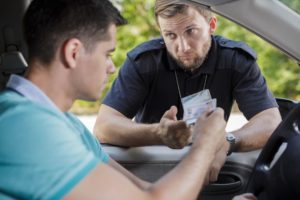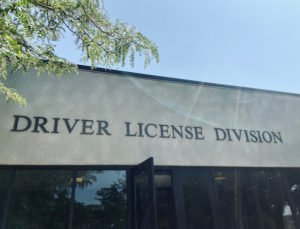A second-time DUI in Nevada triggers a 1-year driver’s license revocation. Though you may be able to keep driving by having an ignition interlock device (IID) installed in all your cars.
The sole way of avoiding a driver’s license revocation (and having to use an IID) is to win not only your criminal case but also the DMV hearing, which are totally independent of one another.
Note that the length of your driver’s license revocation increases with each successive DUI you pick up:
|
DUI offense (within a 7-year period) |
Nevada driver’s license revocation length |
| First DUI | 185 days* |
| Second DUI | 1 year* |
| Third DUI | 3 years* |
| *It may be possible to drive right away with an ignition interlock device. | |
In this article, our Las Vegas criminal defense attorneys discuss:
- 1. What happens to my license after a second-time DUI in Nevada?
- 2. When does the revocation begin?
- 3. How do I keep my license?
- 4. How can I get my license reinstated?
1. What happens to my license after a second-time DUI in Nevada?
Nevada law punishes second-time DUIs (in a seven-year period) with a one-year revocation of your driver’s license. It does not matter if your prior DUI occurred in Nevada or another state.
As detailed below, you have the opportunity to fight the license revocation at a DMV administrative hearing. Though if the DMV finds against you and revokes your license anyway, you may be able to continue driving as long as you have an ignition interlock device (IID) installed in your automobiles.
An ignition interlock device is a mini-breathalyzer that keeps your vehicle from starting if your breath sample comes back positive for alcohol. A certified service interlock provider must install your IID for the DMV to recognize it.
In order to get an IID, you have to pay about $150 for the installation and about $100 a month to maintain it (for each vehicle you have). You also have to pay all the expenses of repairing and calibrating the IID and then ultimately the removal cost.
You are not required to get an IID during your revocation period. But if you do not, then you cannot drive at all.1

A second-time DUI carries a 1-year license revocation in Nevada.
2. When does the revocation begin?
A number of factors determine how soon the Nevada DMV revokes your license following a second DUI.
After an officer arrests you for DUI, you have to submit to either an:
to see whether your blood alcohol concentration (BAC) is 0.08% or higher (which is per se illegal in Nevada).
(Note that since breath tests cannot pick up drug use, you will have to take the blood test if the police believe you took drugs. Also note that if you refuse to get tested, then the police will get a warrant for a forced blood draw.)
The police will take away your driver’s license immediately and replace it with a seven-day temporary license if either:
- you take and fail the breath test, or
- you refuse to get tested.
Though if you agree to submit to the blood test, you may keep your license for the several weeks it will take for the results to come back. Then if your blood comes back positive for DUI, the DMV will send you a certified letter with a seven-day temporary permit.
Once you get the seven-day temporary permit, you must request a DMV hearing before it expires. If you request the hearing in time, you can keep driving until the DMV hearing judge returns a verdict (which can be weeks away).
If you do not request the hearing in time, your one-year license revocation will being once your temporary license expires. In addition, you lose your right to have a DMV hearing at all.2
3. How do I keep my license?
The only way you can avoid having your driver’s license revoked following a second DUI is if you win your:
- criminal case and
- DMV hearing.
These are two entirely separate cases that have no bearing on the other. You can win one and lose the other, and vice versa.
The criminal case is actually easier to win than the DMV hearing. This is because criminal prosecutors have to prove guilt beyond a reasonable doubt – which is a much higher bar than what the DMV has to prove.
Either way, there are various defenses your attorney can try to win your criminal case and DMV hearing. For example:
- The police lacked reasonable suspicion to pull you over;
- The police did not administer the field sobriety tests correctly;
- You were suffering from a medical episode or condition that caused inaccurate BAC results.
- The police lacked probable cause to arrest you; or
- The breathalyzer was defective or your blood samples were contaminated.3
4. How can I get my license reinstated?
Once your one-year revocation period ends for a second-time DUI, your driver’s license is not automatically reinstated. You have to go apply for a new one at a DMV office.
Contact the Nevada DMV for instructions. See our related article, How do I reinstate a revoked license in Nevada?4

Winning both the DMV hearing and criminal case will save your driver’s license.
Learn about license revocations after a 1st-time DUI in Nevada and license revocations after a 3rd-time DUI in Nevada.
In California? Please visit our page on California DMV hearings.
Legal References
- NRS 483.460. See, for example, ; Paschall v. DMV (2000) .
- NRS 484C.230. NRS 483.460. NAC 483.8485. NRS 484C.180; NRS 484C.220. NRS 484C.400. NRS 484C.110.
- See notes 1 and 2.
- License Reinstatement, Nevada DMV.

